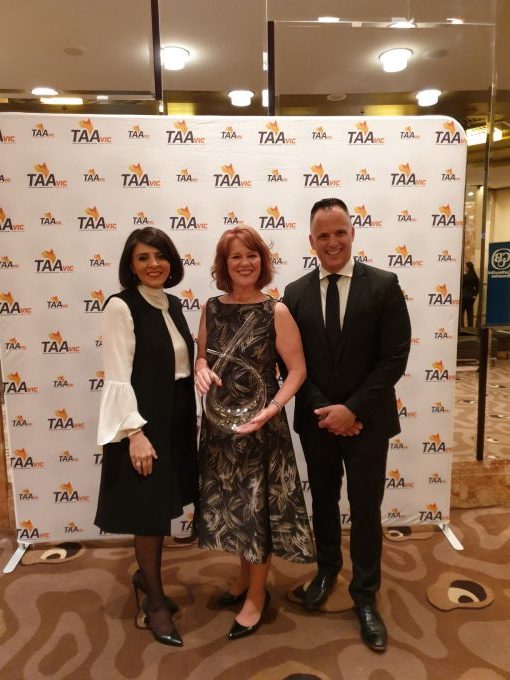
Federal budget – what does it mean for the accommodation sector?
Federal treasurer Joe Hockey has handed down the government’s first budget, confirming a number of previously announced measures.
These included the introduction of a Temporary Budget Repair Levy on high income earners, an increase in the pension age to 70, and the option to withdraw excess non-concessional contributions from superannuation.
It is important to note the budget announcements are still only proposed at this stage and need to be legislated.
Temporary Budget Repair Levy – From 1 July 2014, a “levy” (aka tax) of 2 per cent will apply to any individual’s with personal taxable income over $180,000 per annum. The Levy is forecast to apply for three years. Below is an indication of the amount of the levy for people on different incomes:
$200,000 $400
$250,000 $1400
$300,000 $2400
It’s also important to note that while this levy is proposed to apply to high income earners, it could also potentially apply to people with income below $180,000 where they:
• sell an asset and realise capital gains, or
• take a superannuation lump sum benefit consisting of taxable component between the age of 55 and 59, as this amount will be included in the taxpayer’s taxable income and could push the client over the $180,000 threshold.
Therefore, taxpayers considering selling assets or taking superannuation lump sums between 1 July 2014 and 30 June 2017 may need to take into account any additional levy they incur as a result.
Superannuation – option to withdraw excess non-concessional contributions from superannuation – The government has proposed that individuals will have the option to withdraw contributions made from 1 July 2013 that exceed their non-concessional contributions cap. This proposal is good news as it will mean that investors who inadvertently exceed their non concessional cap will have the ability to withdraw the excess amount rather than have it taxed at the top marginal rate.
Under this measure, associated earnings are also able to be withdrawn and taxed at the individual’s marginal tax rate. Final details of the policy will be settled following consultation with key stakeholders in the superannuation industry. It’s understood that individuals who do not withdraw their excess non concessional contributions will continue to be subject to excess contribution tax at the top marginal tax rate on the amount of the excess.
Superannuation guarantee rate to increase to 9.5per cent – change to schedule for increase to 12 per cent – The government has announced that the Superannuation Guarantee rate will increase from 9.25 per cent to 9.5 per cent from 1 July 2014. However, the Superannuation Guarantee will stay at 9.5 per cent until 30 June 2018 before it will increase gradually each financial year by 0.5 per cent until it reaches 12 per cent on 1 July 2022. Importantly you should ensure you have your systems in place to correctly calculate employee superannuation at the net higher rate.
Reduction in company tax rate – The company tax rate will be reduced by 1.5 per cent to 28.5 per cent from 1 July 2015. For companies earning more than $5 million in taxable income, this reduction will be offset by the 1.5 per cent levy to fund the paid parental leave scheme which also commences from 1 July 2015.
Abolishing tax offsets – From 1 July 2014, the government will abolish the dependent spouse tax offset and the mature age worker tax offset.
Cessation of First Home Saver Accounts – New First Home Saver Accounts opened from 13 May 2014 will not be eligible for concessions, with the government co contribution to cease from 1 July 2014 and tax concessions and the income and asset test exemptions for government benefits associated with these accounts to cease from 1 July 2015.
New subsidy for employers hiring Australians 50 years or over – From 1 July 2014, the government will introduce a new wage subsidy – Restart – to encourage businesses to employ Australians who are aged 50 and over and have been on income support for at least six months. Employers may receive up to $10,000 over 24 months in government assistance.
NRAS changes – The development sector took a hit to affordable housing, with the announcement that the final round of the National Rental Affordability Scheme would not proceed. While existing incentives will continue for up to 10 years, the scheme is to be reviewed going forward.
What does it all mean for small business in the accommodation sector?
Of key concern is the short term fallout from the personal tax changes in the budget that could have an impact on consumer confidence levels and the improvement we have seen in the residential housing sector of late. The budget announcements made by the federal treasurer are unlikely to have a positive impact on consumer confidence. Initiatives that reduce disposable income, such as the Budget Repair Levy will not be welcomed by the leisure sector. Overall it is a tough budget, but unlikely to have a significant negative impact on business.
The scheme for encouraging employment of 50+ year olds may mean they find jobs in the accommodation industry. Many operators would love to have more experienced and mature staff, however quite a bit of training may be required to re-skill. Despite the shortcomings, this initiative is encouraging for small and medium businesses and could help drive continued growth in the sector.
The information, opinions or conclusions provided above are generic in nature and do not express individual advice or recommendations. You should always consult a suitably qualified professional before taking any course of action outline above.






